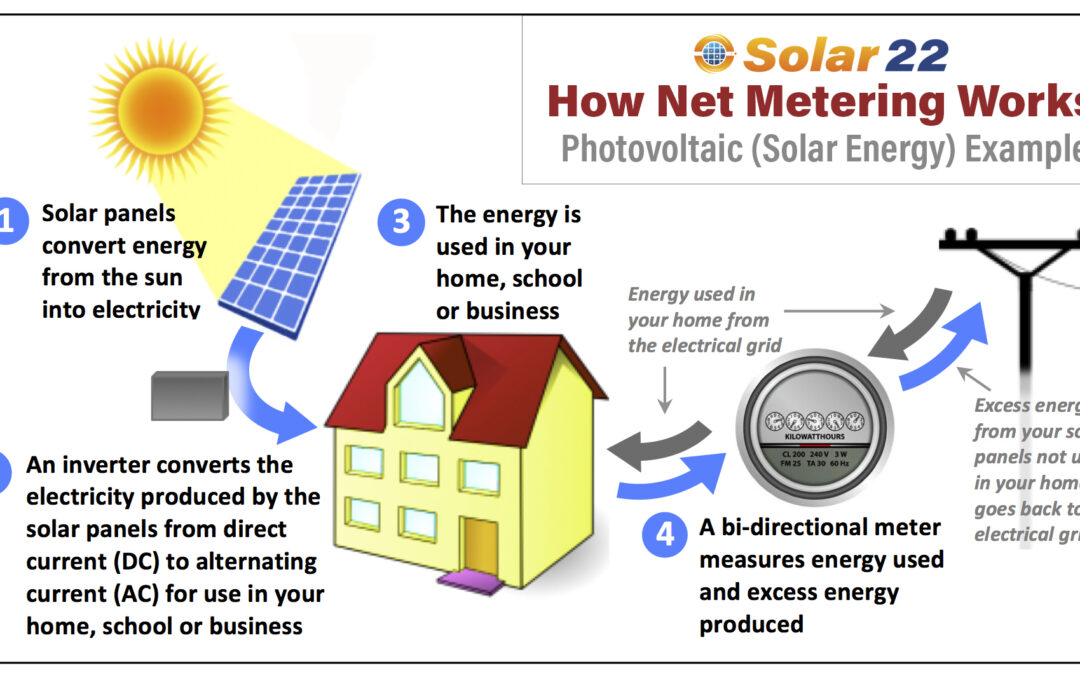Net metering has been one of the major drivers in the growing interest of solar energy for homeowners. Net metering allows energy users who generate some or all of their own electricity from their solar panels to offset their electric bills, regardless of the time of day that they generate or use electricity.
It works like this: Say a homeowner has solar panels mounted on the roof of their home. While they are at work and not using much electricity, any excess power produced from the system is sent back into the grid. When the homeowner returns in the evening, they can turn on the lights, cook dinner, or watch TV and the energy used in the evening is offset by the energy generated during the day. As a result, the homeowner’s energy bill will be close to zero, when it arrives at the end of the month.
Sounds like a good deal, right? Some electric utility companies think otherwise.
Net Metering System Prices & Costs
Electric companies explain that they have high expenses related to operating and maintaining our electricity distribution system (aka: “the grid”). They must maintain the poles, wires, meters and all other equipment necessary to provide power to their customers.
The major complaint from electric companies regarding net metering is that when a customer offsets their electric bill with power generated by solar panels, that customer is not contributing anymore to the fixed costs required to maintain the grid. They argue that as more customers take advantage of net metering, fewer fixed costs are paid into the system, which inevitably results in higher rates for non-net metering customers.
While this may be true, electric demand from the grid is sure to increase rapidly, since there is a federal push for all new vehicles to be electric by 2035, invariably making electricity from the grid even more expensive, due to increased demand. Currently, just 2% of all cars sold in the U.S. are electric. It can be argued that solar energy is more necessary than ever, as more Americans make the transition from oil based energy to operate their automobiles.
Subsequently, solar will become an absolute necessity, if for no other reason than to take some of the strain off of the grid. When the demand for solar increases to support the grid, the prices for solar energy solutions will increase as well.
Government and the Climate
President Joe Biden’s administration has pledged to roll out 500,000 new electric charging ports for cars within the next decade. Net metering is the result of government policies encouraging the growth of renewable energy sources, such as solar and wind generation.
Many utilities and state regulatory commissions have capped net metering at a percentage of total system load. However, some utilities have reached or will soon be reaching their cap, while demand for net metering continues to rise. If caps are lifted, more customers will add solar panels to their homes, net meter their usage, and reduce their contribution to fixed utility costs. Meanwhile, the coming explosion of electric cars coming to the grid will increase electricity demand, increasing demand for solar.
The fact is that Americans will be using much more electricity in the very near future, so net metering is not likely to disappear anytime soon.

